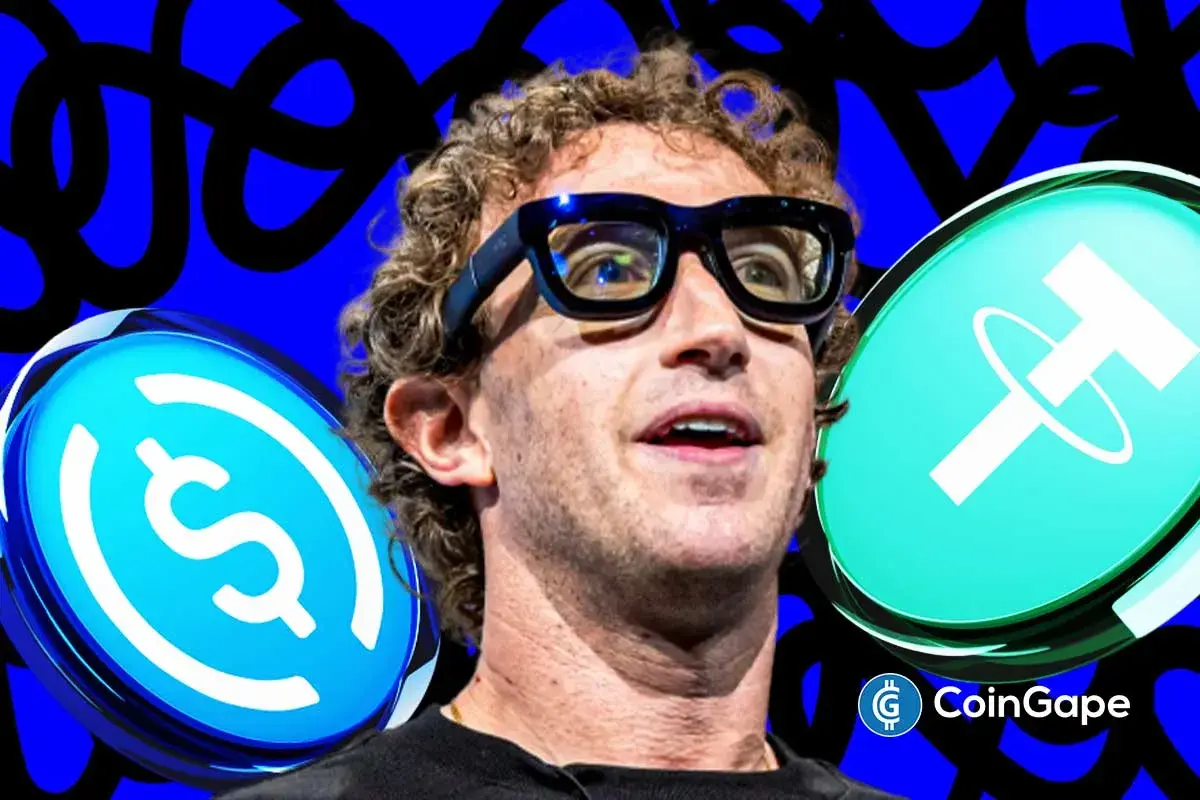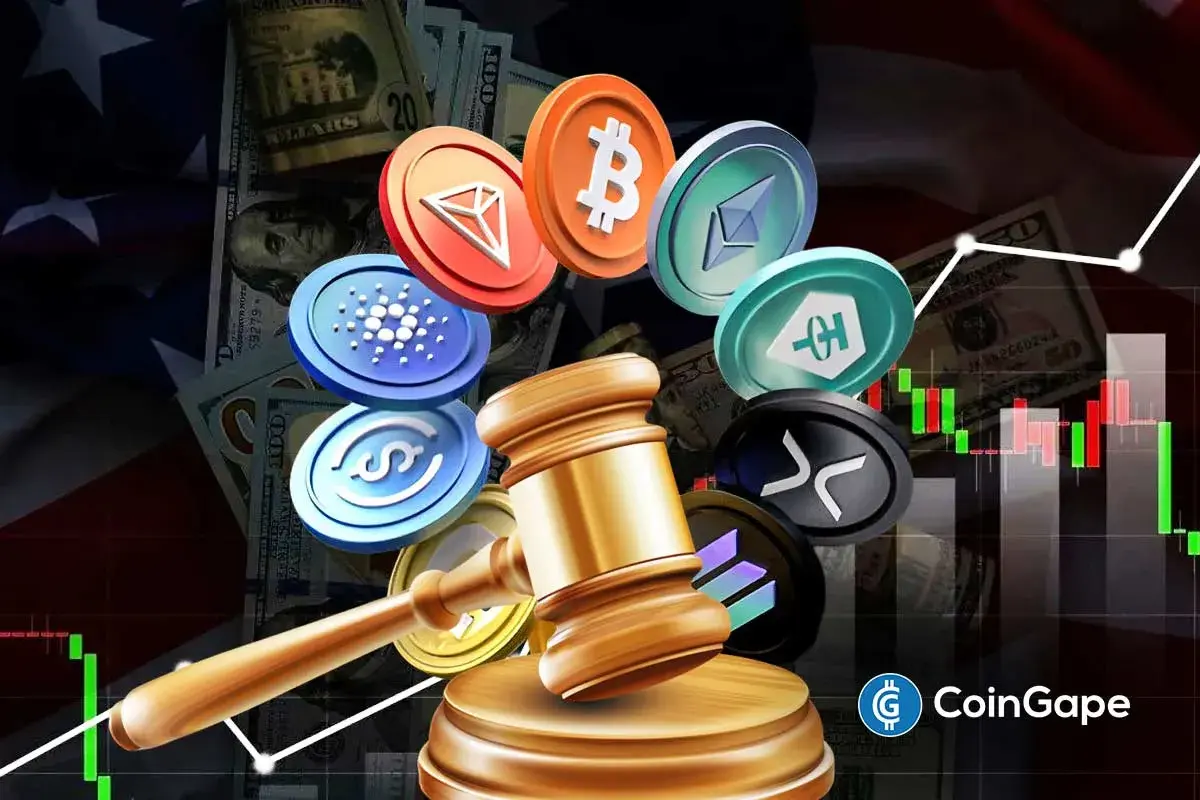Binance Founder Changpeng ‘CZ’ Zhao Issues Major AI Warning To Community

Highlights
- CZ warns against AI deepfakes promoting unknown coins on social media.
- Ripple CEO faces similar AI scams; Ripple issues alerts to protect users.
- Binance's CZ to speak at Blockchain Week after U.S. legal battle.
Binance founder Changpeng ‘CZ’ Zhao has alerted the crypto community to the rising threat of AI-generated deepfake videos circulating online. He then posted on social media to alert his followers to fake videos depicting him promoting different cryptocurrencies.
Binance Founder Changpeng ‘CZ’ Zhao Issues Major AI Warning
In a recent post on the social media platform X, Changpeng ‘CZ’ Zhao, the founder of Binance, warned the community of deep fake videos created by AI. Zhao said that these videos are misleading and depict him as promoting coins he has never invested in. There are deep fake videos of me on other social media platforms.” Please beware!” Zhao wrote. The Binance founder stated that he had no knowledge of the coins being marketed in these videos and urged his followers to be on the lookout for impersonation frauds.
Binance founder’s warning is a response to the increasing anxiety in the crypto world about artificial intelligence being employed to generate misleading content. Deepfakes are the videos created with Artificial intelligence which allows the deep learning algorithms to create a real video of a person saying or doing something they never did. Such a type of fraud is becoming more and more widespread as AI tools are used to create realistic fake videos.
One X user humorously warned others to be cautious during Binance Blockchain Week (BBW), joking that founders may take photos with Zhao and later claim,
“Great to meet @cz_binance, and discussed the potential of XYZ project.”
Broader Issue of AI-Driven Scams
AI-driven deepfakes are not only going after Binance founder Changpeng ‘CZ’ Zhao but also the entire crypto space. Scammers have started using Artificial Intelligence to generate fake content that dupes investors and damages the image of key players in the market.
In the recent past, even Brad Garlinghouse, the CEO of Ripple, stated that deepfake scams were on the rise, and he used an example of videos featuring himself promoting fake products.
Fraudsters have used artificial intelligence to puppet old videos to seek to defraud individuals. Similarly, Ripple has posted a number of warnings for the consumers to exercise vigilance and stay away from fake accounts that impersonate the company.
High-Profile Deepfake Incidents Continue
The risk associated with Artificial intelligence in the form of deepfake scams is not only eminent in the crypto space. Celebrities like Taylor Swift and Donald Trump have been faked in AI videos. Recently, Swift expressed her concern about the use of AI deepfakes after her pictures were recently used to support some politicians. This problem has worsened over the years due to the enhanced advanced in the Artificial intelligence.
In a similar case, the YouTube channel of Indian Supreme Court was compromised to promote a fake cryptocurrency investment platform. Cybercriminals posted fake videos on the channel as a means to manipulate the audience into buying into a fake Ripple and XRP investment plan. YouTube terminated the account, but this case shows that AI-based fraud is becoming more frequent.
Despite the challenges posed by AI-driven scams, Binance founder Changpeng ‘CZ’ Zhao is set to return to the public stage. After serving a four-month sentence, Zhao will attend the Binance Blockchain Week in Dubai on October 30-31. This will mark his first major public appearance since his legal battle with the U.S. Department of Justice.
- Mark Zuckerberg’s Meta Reportedly Eyes Stablecoin Integration This Year Amid Regulatory Clarity
- Coinbase Rivals Robinhood As It Rolls Out Stocks, ETFs Trading In ‘Everything Exchange’ Push
- UAE’s Second Largest Bank Eyes Bitcoin Allocation, Backs Tokenization
- Crypto Group Proposes Tax Rules To Boost Innovation As CLARITY Act Talks Progress
- XRP News: SBI Ripple Explores XRPL for Cross-Border Payments in Strategic Research
- Pi Network Price Eyes a 30% Jump as Migrations Jumps to 16M
- Will Ethereum Price Dip to $1,500 as Vitalik Buterin Continues Selling ETH?
- XRP Price Outlook as Clarity Act Passage Odds Plunge to 53%
- COIN Stock Risks Crashing to $100 as Odds of US Striking Iran Jump
- MSTR Stock Price Predictions As Michael Saylor’s Strategy Makes 100th BTC Purchase
- Top 3 Meme Coins Price Prediction As BTC Crashes Below $67k

 Claim Card
Claim Card
















